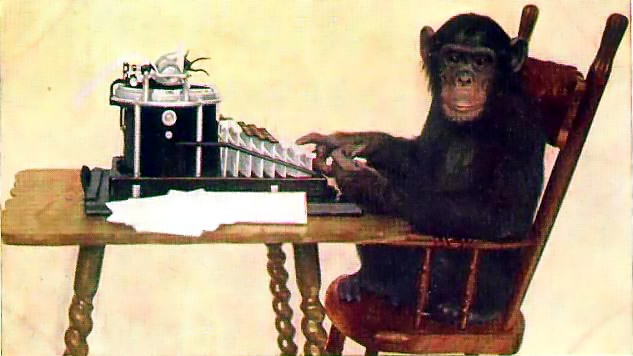OpenAI is a long way from challenging Google.
- The hubris around OpenAI following the popularity of ChatGPT continues to grow but the nature of ChatGPT and NLP models, in general, has not changed and they remain wholly unsuited for any task where factual accuracy and truth are important.
- As a result, I think that Microsoft will struggle to make a decent search engine using ChatGPT any time soon but participating in chatter will help OpenAI raise money at $30bn and enable Microsoft to write up the value of its original investment.
- I have long viewed Microsoft’s investment in AI as a supply agreement as a large proportion of the $1bn that it paid to OpenAI will have come back in the form of revenues for Azure.
- OpenAI subscribes to what I call the infinite monkey theorem of AI which means that if you throw enough data and enough compute at a problem then the answer will eventually pop out at the end.
- This is not dissimilar to the idea that given enough time and a typewriter a monkey will eventually come up with the complete works of Shakespeare.
- Consequently, OpenAI uses a lot of compute and so as the supplier of the compute, Microsoft effectively de-risked what I have long argued was a bet on a very long shot (see here).
- By getting most of the money back in terms of cloud revenue, Microsoft effectively paid a greatly discounted price in terms of the valuation in 2019.
- Now it is considering investing $10bn in the company at a valuation of $30bn where the money would be injected over a period of time presumably as a series of milestones both technical and financial are met.
- This has triggered speculation that ChatGPT will be integrated into Bing to allow it to compete more effectively with Google but I think that this will be easier said than done.
- First, time freeze: ChatGPT is frozen in time as it was trained on a single snapshot of the internet taken in 2021.
- This means it does not know that Russia invaded Ukraine nor does it know that Queen Elizabeth II has passed away.
- This was done in order to make the dataset upon which it was trained as finite and as stable as possible.
- I have argued countless times that stable and finite are crucial criteria for deep learning systems and when these criteria are not met, the system rapidly falls over.
- Search is a service that has to be relevant and up to date (data constantly changing) and so this gigantic problem has to be solved before one puts ChatGPT anywhere near search and this is going to take a long time.
- Second, long tail: Bing is a perfectly good search engine but Google is much better at finding the obscure items being searched for and surfacing them to the user.
- It is also much better at guessing what the user is looking for when the search request is not very clear.
- These two characteristics together are what make Google such a good search engine and are, to a meaningful degree, the reason why everyone keeps using it.
- I don’t think that ChatGPT will be much help in fixing either of these problems and so I don’t really see how using ChatGPT will make Bing a better search engine.
- This is why I don’t think that ChatGPT will help Bing challenge Google nor do I think that it will be incorporated into the search engine in a meaningful way anytime soon.
- However, having Microsoft onboard preselling large amounts of Azure capacity to OpenAI and getting shares in return lends a degree of legitimacy that gets a good dose of FOMO (fear of missing out) going for everyone else.
- OpenAI started as a non-profit and a portion of the company still leans that way and as far as I am aware the company has no real revenues to speak of.
- Hence, how the company is worth $30bn is a big mystery to me especially in this climate as I suspect that if it had gone public as a SPAC at $10 it would probably be trading at $0.3 or less by now.
- There is nothing here that leads me to believe that there is either a Google killer in the works or a good value proposition at $30bn.










Blog Comments
Anish
January 11, 2023 at 12:31 pm
Could not agree more. The valuation numbers being thrown around are plain silly.